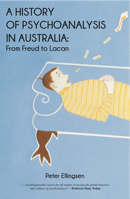Psychoanalysis works through talking in a way that produces truthful knowledge. This inevitably traces back to the way in which we are made up of the remnant traces of lost relationships, the experience and registration of loss. We are, in that sense, not what we eat, but what we have loved. We become what we could not bear to give up. This is the insight of psychoanalysis, and it has a lot to do with the ambivalence that goes along with love. We not only bury the pain of lost love but repress the memory of it; memories which return, unconsciously, as the software of our lives, making robots of us all. It happens every day, but in such a way we are unaware of it. We need to wake up. Much mental pain, such as the now common depression, is the effect of refusing to see how the past has marked us. We are then, the product of earlier waves of wounding shocks. Psychoanalysis tackles this by understanding that, while many conditions, such as depression, are expressions of withheld emotional reactions, there is a choice. Do we identify with our loss as something or someone we can’t bear to let get of, or do we accept and mourn what cannot be regained? The answer to this question is how character is formed; our personality is made up of the left over traces of lost relationships, the experience of loss and the registration of that loss.
Psychoanalyst and Writer
- New beginnings
- What is Psychoanalysis?
- Treatment
- Profile
- Books
- Writing
- FAQ
- Contact
- April 20, 2024
Copyright © 2024 Peter Ellingsen · Web Designers Marmoset Digital Media · Log in

